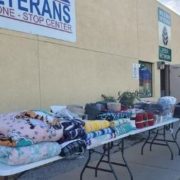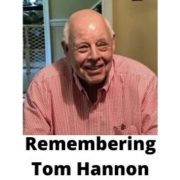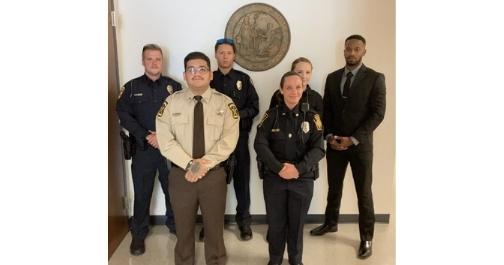TownTalk: Local Sports Legend Eddie Hicks On Life, Football And Helping Youth
If it weren’t for folks who cared about a youngster growing up in Flint Hill all those years ago, Eddie Hicks’s future could have turned out quite differently.
That’s why Hicks does what he does to advocate for young people – he knows what it means to have someone on your side, whether it’s someone who gives you a place to stay when you need one, or whether it’s someone who offered you a part-time job at the local rec department. Hicks knows. And he remembers.
Hicks has a long relationship with the Henderson-Vance Recreation and Parks department – he’s closing in on five decades, in fact. “And I still love doing what I do,” he explained to John C. Rose on Tuesday’s Town Talk. Hicks recalled the days when, as a teenager, he and others helped keep the grounds cleared and mowed for the department. Fox Pond Park has a special place in his heart, because it’s where he did all his athletic training.
And now, the name of Edward James Hicks will be a permanent fixture at Fox Pond Park. HVRPD Director Kendrick Vann recently proposed to city officials that a picnic shelter be named in honor of Hicks.
“It really means everything to me – it really does,” Hicks said. “It brought tears to my eyes.”
He worked for parks and rec any time he came home, Hicks said. “A job was always there for me,” he said, noting the strong role then-director Ralph Peace played in his growing up.
Hicks’s father died right before Hicks was scheduled to head off to college, but both his parents had instilled in him values that helped carry him through tough times. He said football coaches Lonnie Davis and Tony Oakes helped him tremendously.
And then there was Hamlet Wilkerson, who opened his home to a teenaged Hicks and took him in. Hicks, and his brothers – he’s the youngest of three – got along fine outside the house, but not when they were all under the same roof. Wilkerson was a teacher at Hicks’s middle school and, although he has passed away, Hicks maintains close ties with the Wilkerson family.
“It takes a village to raise kids (in) this day and time,” Hicks said. Were it not for coaches and teachers and the values that his parents taught him, he said his life could have turned out very differently.
“I couldn’t have been successful (without them). wouldn’t be who I am right now if it were for (those) folks,” he said. There were so many people who loved Eddie Hicks back then, he said. “And I appreciate it.”
Those people who had a major impact on back then continue to influence Hicks today. His work with Melissa Elliott’s Gang Free organization is just one way he can give back to a community – his community – in need.
“So many folks have looked after me. And the Bible says pay it back ten times more,” he said.
For Hicks, football was a ticket to a brighter future. He played for legendary ECU Coach Pat Dye, who originally recruited him as a tight end. But Hicks was moved to running back, and that’s where he made his mark. There was one remarkable game against UNC, Hicks recalled. ECU was probably a 30-point underdog headed into Chapel Hill in 1975 to face the likes of #56 Lawrence Taylor. That 68-yard touchdown run that the freshman Hicks made was the start of a stellar career with the Pirates. It was a time #28 won’t soon forget. His three touchdowns in Chapel Hill propelled ECU to their first-ever win over the Tar Heels.
As Hicks recalled those glory days on the playing field, however, he cautioned young people just starting out in a sport – or any endeavor.
There’s no replacement for practice, hard work and paying your dues, he said. “If you don’t perform, you’re not going to play.”
Hard work and dedication on the playing field transfer to other areas, he said. The first priority is God, he said. “God’s gotta be first,” he said. Respecting parents comes next. “It really bothers me when kids don’t listen to their mama and daddy,” he said.
Today’s high school athletes have to keep their grades up in order to play their sports, and Hicks is all for that. “School didn’t excite me,” he acknowledged, and he had to keep an eye on schoolwork during the week so he could play on Fridays.
That effort got him to ECU, where he rushed for more than 2,100 yards during his four-year career. He still holds the school record for the longest rushing play – 95 yards. He was inducted into the ECU Hall of Fame in 2014.
ECU wasn’t a powerhouse football school in the late ‘70s, but Hicks wouldn’t trade his time there for anything. “If you want the opportunity to do great things, go to a small school and make a difference,” he said.
Hicks made a difference on the football field, and he continues to make a difference in his community.
As for his beloved Fox Pond, he said it looks better now than ever. People come out to enjoy the amenities, from tennis courts to fishing in the pond. Hicks said he still plays a little tennis himself, and he enjoys walking in the park.
“Mr. Vann has a good vision,” Hicks said. “He wants everything first class. We’re going in the right direction for Fox Pond Park to be bigger and better.”
Click Play for audio interview.











